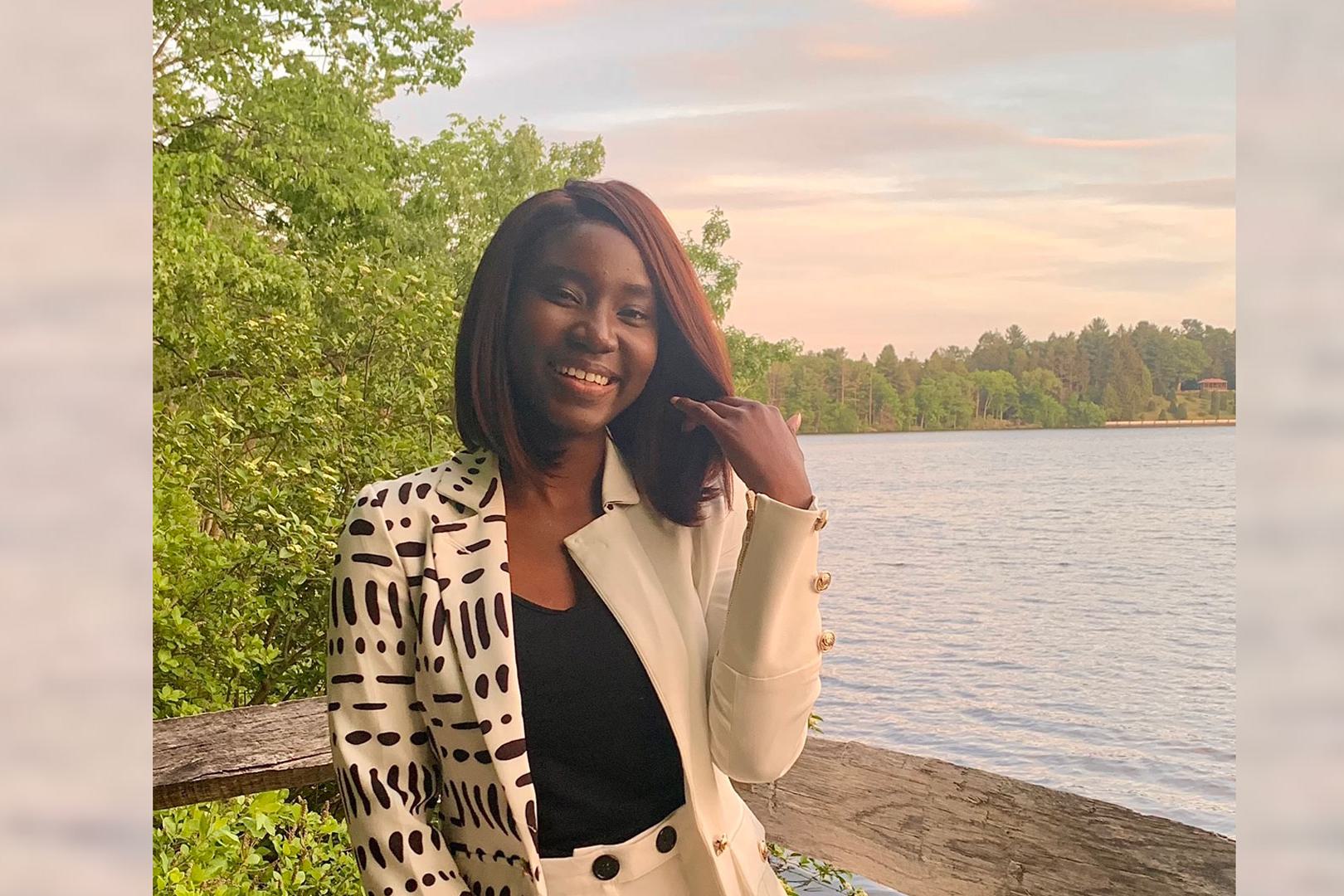When Adwoa Difie Antwi ’21 was deciding where to go to college, she pulled up the websites for each of the schools she had been accepted to on her computer. As she compared her options, clicking back and forth between the sites, she kept returning to wellesley.edu. “It was calling my name,” Antwi said. Thankfully, when her financial aid package arrived from Wellesley, it was the best one of all the schools. It felt like divine intervention. Antwi packed her bags and left her home country of Ghana to begin her college education.
“I have never regretted choosing Wellesley,” Antwi said. “I think it was the best decision I could have ever made.”
Once on campus, Antwi threw herself into Wellesley’s liberal arts mission. She knew she wanted to be pre-med and assumed that meant she would have to major in biology or chemistry, but she soon learned that she could fulfill the pre-med requirements while majoring in something completely unrelated. As she explored other departments, her first-year roommate—another international student, from Chile—suggested she take a course with Kellie Carter Jackson, Knafel Assistant Professor of Humanities and assistant professor of Africana studies, called Women and Slavery. “I was like, I’m in love with this course!” Antwi said, laughing.
Through Carter Jackson’s curriculum, Antwi said she learned more about herself as an African woman, about Black women and girls throughout history, and about American slavery. “There were concepts I had never heard of coming from Ghana—things that weren’t taught to us in history there,” she said. “The class was really enlightening for me, and provoked me in different ways than my science classes.” Antwi decided to major in Africana studies while continuing to pursue her pre-med courses: “I found myself shuffling back and forth between the Science Center and Founders. And it was great.”
Antwi also pursued a variety of interests across campus: independent studies with Liseli Fitzpatrick, visiting lecturer in Africana studies; a public speaking class with Lois Roach, senior lecturer in theatre studies; volunteer work; theatre productions; and the Harambee Singers.
Antwi described her Wellesley experience as “holistic and harmonious,” with everything influencing and impacting everything else. For example, Antwi noticed that in her STEM classes, she was often one of only three or four Black students. “My science classes gave me a different understanding of how I fit into the world, and really challenged me to want to survive,” she said. She committed to going to office hours, meeting with professors one-on-one, and spending countless hours studying on her own. But Antwi said it was the balance of sciences and the humanities that really helped her thrive. “My humanities classes were discussion-based,” she said. “We did more reading and writing, as opposed to a science class where it’s a lot of studying concepts and models, and then applying them to real-life situations. Both gave me advantages: I could apply my science to humanity, and I could apply my humanity to science.”
For her Africana studies thesis, Antwi focused on Black girlhood, which is a relatively new academic field. She wanted to make the case for why it was important to study, and to show how Black girlhood influences Black womanhood and vice versa. Using examples from her own life and experiential observations, and citing academics including Toni Morrison, Jennifer L. Morgan, Harriet Jacobs, Ruth Nicole Brown, and Wellesley’s own Layli Maparyan, Antwi dug into the social factors and stereotypes that have impacted Black girls through time.
Now, Antwi plans to take action. Before medical school, she will pursue a master’s degree in public health at Yale University (one of the 11 graduate programs she was accepted into). “My program is in health care management, but I am incorporating a track focusing on maternal and child health,” Antwi said. By homing in on public health, she will be able to engage in the service aspects of topics she studied in her thesis and apply it to health matters. Her humanities background gives her an understanding of the factors affecting Black girls and women, and, through science, she will help effect change for them. “I want to go with my heart, career-wise,” Antwi said.
Antwi is goal-driven and future-focused, but at the same time, she made sure to enjoy her time at Wellesley. “Prof. Roach once said to me, ‘Commit to the journey, and I will go with you,’” Antwi said, and she consciously lived by that philosophy every day. “If I committed to the journey of doing my best at everything I put my hands in, I knew I would be proud of myself, regardless of the result,” she said. “However, I could not have made it this far without the unwavering support of my family, teachers, and friends.”
